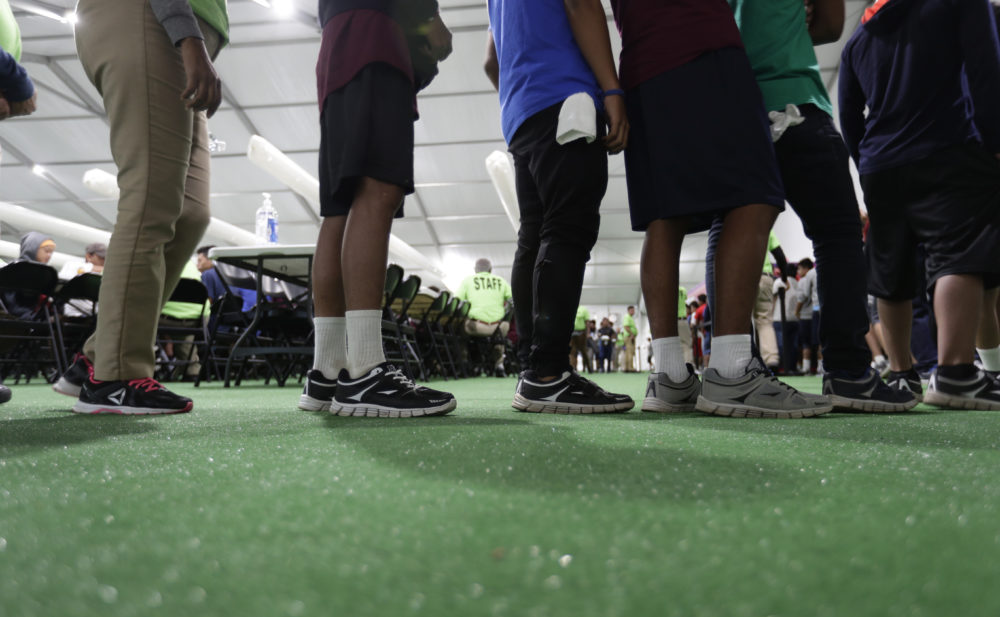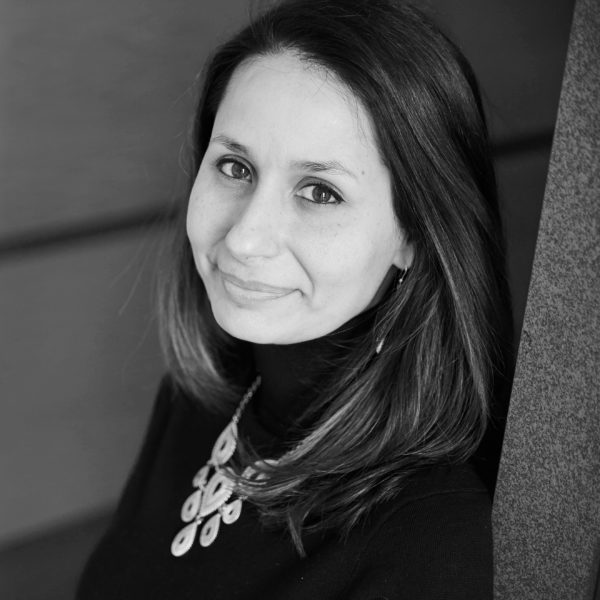Advertisement
commentary
My Story As A Child Migrant

On June 24, 1980, my mother, my cousin, and I boarded a train from Kutno, Poland to Berlin, Germany. I was 7. As my grandmother bid us a teary farewell at the station, I did not understand what was happening. The situation in Poland had become desperate. Supermarket shelves were left bare as prices rose and food shortages continued. People stood for hours in long queues, hoping to buy anything before supplies ran out. Desperation gave rise to opposition movements that called for the end of the Soviet-aligned, Communist Party-ruled government. By the end of 1981, the government declared martial law with the intention to suppress political opposition. My family felt compelled to leave.
When we arrived in Berlin, we first experienced Germany through the Bahnhofsmission, a German aid organization. To this day you can still find them in many train stations in Germany providing service to anyone in need. Seeing the three of us looking lost — none of us spoke German — the volunteers gave us food, warm tea and advice before we boarded our next train to Hamburg.
Unlike the journeys of today's migrant children, mine did not include the perils of crossing treacherous waters ...
Two hours later, we accidentally disembarked 11 kilometers too early, at the Hamburg Altona station. Working our way from Altona to the city center, we searched for a room that we could afford. We spent the following five days searching for the reception center for refugees. By the time we found it, we had run out of money.
I am lucky. I do not remember being hungry because my mother and cousin made sure I was fed. They both suffered silently. We were not granted asylum because we did not qualify as political refugees. However, we were given a "Tolerated Stay Permit" which allowed us to remain in Germany because a return to Poland was seen as impossible at the time. The permit fulfilled the fundamental, international principle of "nonrefoulement" -- that refugees and asylum-seekers cannot be expelled or returned to a place where their lives or freedom would be threatened -- and included financial assistance and a home. My mother and I did not stay in Germany for long, but my cousin, then 18, did. Over time she got a work permit, a residence permit and, finally, the right to obtain German citizenship.
My story as a child migrant is now a common story. Today there are over 70 million forcibly displaced people worldwide. We are facing history’s worst refugee crisis. Moreover, half of the world’s refugees are children. Unlike the journeys of today's migrant children, however, mine did not include the perils of crossing treacherous waters such as Valeria Martinez across the Rio Grande or Alan Kurdi in the Mediterranean Sea, with laws that forbid the rescue of refugees.
It was not illegal to give us humanitarian aid in our time of need.
It was not illegal to give us humanitarian aid in our time of need. I was not separated from my mother when I entered Germany like Franklin and Byron were. I did not get placed in a detention center or locked in a cage, malnourished, cold, dirty and alone. As a young child, I experienced this part of my life as a journey, not an ordeal. I was not traumatized by this experience like Jenri and so many other migrant children are today.
Several countries have welcomed refugees, primarily nations in the Middle East, Africa and South Asia. Jordan (2.7 million), Turkey (2.5 million), Pakistan (1.6 million), Lebanon (1.5 million) and Iran (979,400) have been the top five refugee-hosting countries. The response of wealthier nations has been shameful, and often includes gross violations of human rights. The Gulf States have been largely absent in accepting refugees. Much of Europe, with the notable exception of Germany, restricted access of asylum seekers, often in a bid to gain favor with anti-immigrant sentiments before elections. In the United States, a similar pattern emerged after the 2016 election of Donald Trump and his anti-immigrant rhetoric.
Although the scale of the current migrant crisis is exceptional, the world has faced similar challenges in the past. Our history and the recognition of migrants' vulnerability has already provided us with the framework for dealing with refugees: the 1951 Refugee Convention and the 1967 Protocol. The convention lays out the rights and responsibilities of both refugees and host countries. The convention has been signed and ratified by 145 nations, including the United States and the European countries which have shirked their treaty obligations. Moreover, migrants who are not refugees are still entitled to fundamental human rights protections, vital in light of their marginalization in host countries. These and several other international treaties were established specifically in response to atrocities and genocides that have been the result of "othering" and the dehumanization of minorities.
In 1980, I had the privilege to enter a country that remembered the lessons of history. As we move further into the future, we are experiencing collective amnesia of the horrors of the past. Worldwide migration will likely continue to increase in the foreseeable future; the looming climate crisis will propel environmental migration.
What will our legacy be? Right now the future of our world is filled with too many hollow men, and too many of us simply watch as our humanity disappears, not with the bang of another world war, but the whimper of yet another desperate child we have left to suffer and die.
